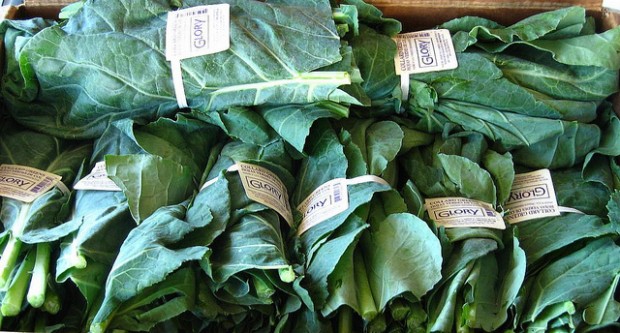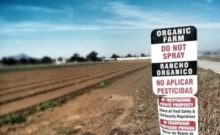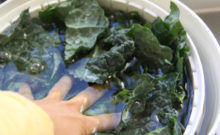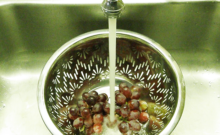 All food must be washed before it is consumed. Even organic produce needs to be washed, because it has been touched by people before it is brought home. This means that there is a high likelihood that germs are on the food’s surface. There are any number of consequences that come from not washing your food properly, including those listed below.
All food must be washed before it is consumed. Even organic produce needs to be washed, because it has been touched by people before it is brought home. This means that there is a high likelihood that germs are on the food’s surface. There are any number of consequences that come from not washing your food properly, including those listed below.
Bad Taste
The first problem with not using a good food wash technique is that foods simply won’t taste as good as they should. Fruit wash and veggie wash products help to remove dirt and debris that can easily affect how a food tastes. Additional contaminants including chemicals, pesticides, bacteria and fertilizers can also make food taste bitter or unpleasant. Although this consequence is the least serious, it is still important, because the taste of food is a big part of how much it is enjoyed and whether or not family members will eat what they are given.
Lacking Freshness
With some foods, food wash procedures can help to keep them stay fresh for longer periods of time. Foods such as lettuce, cabbage, spinach, kale and Swiss chard can last longer when you use veggie wash on them as soon as you bring them home. After washing, these leafy greens should be patted dry and stored in the refrigerator until they are consumed. It also makes them easier to grab and go, which can be especially important when children are in the home and are being encouraged to eat more fresh foods.
Bacterial Contaminations
Food poisoning can be a very serious issue, especially in those with compromised immune systems, the elderly and the young. Foods that have not been properly cleaned are contaminated with a number of different bacteria that can cause serious illness. Some of these contaminants include salmonella, E. coli, candida albicans and enterococcus. Salmonella can lead to dehydration, diarrhea, fever, vomiting, cramps and even death in extreme cases. E. coli can also cause diarrhea, fever, vomiting, cramps, weakness and dehydration. Candida albicans can lead to oral infections, genital infections, thrush and fungal infections. Enterococcus can lead to meningitis, diverticulitis and urinary tract infections.
Pesticide Contaminations
Produce that has not been thoroughly cleaned with a fruit wash or veggie wash can also be coated in a number of different pesticides including PP-DDE, mirex, fluotolanil, aflatoxin, sulfur dioxide, vinclozolin, dichofluanid, pendimethalin, trans-chlordane, EPN as well as countless others depending on where the crop was grown. These pesticides have been linked to a number of different health problems, including birth defects, leukemia, brain cancer, Parkinson’s disease, fatigue, nausea, vomiting, liver damage, kidney damage, blood disorders, brain disorders, breathing problems, skin irritations, various cancers and even death. Not washing food products properly can lead to a number of unpleasant consequences for the people that eat them. Even foods that are labelled as “organic” or “pesticide free” may still have a number of contaminants on them that can affect the person consuming them. Make sure to properly follow kitchen hygiene, to include washing hands and using products such as a fruit wash and veggie wash before consuming anything. Above Image Source: Flickr/Glory Foods




fantastic points altogether, you just won a brand new reader.
What could you recommend about your publish that you just
made a few days ago? Any certain?